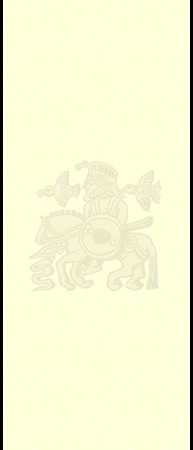



| Web site design and maintenance by Akikaze Media Services. All content of this site, unless otherwise noted, is copyright ©2001 Robert Bly. All Rights Reserved. Any duplication, in any form without the written consent of the copyright holder is prohibited. |
Interviewer: Can I ask you something about the element of sound, what it means in poems? You've been giving talks on that lately.
Robert Bly: Wallace Stevens says something like, "A poem should almost successfully escape the intellect." Only music can do that. So that if the poem has no genius in sound, the practical intellect will imprison it, so to speak, in a box and show it to visitors.
Interviewer: You are thinking of a poem as a musical event, as well as a carrier of thoughts or emotions?
Robert Bly: Exactly. Poems can become musical events in a number of ways. Two I've been brooding on are these. First, the Seven Holy Vowels, as they were understood in ancient times, can come in. (Joseyln Godwin has a charming book called The Mystery of the Seven Vowels.) The great vowels bring radiance, and add energy when they enter; they even encourage the arms and legs to move in a certain way. The seven vowels, one could say, penetrate through the intellect to the body.
Then there is such a thing as chiming. Chiming means that tiny sounds chime with each other inside the line. It's a sort of interior rhyming that the writer does without alerting, or even telling, the reader.
Suppose you decide like Stevens to chime with the syllable "in." Then you could say:
The trade wind jingles the rings in the nets around the rocks by the docks on Indian River.
It is the choice of "in" that determines the name of the river at the end.
One little chiming poem of mine begins:
How sweet to weight the line with all these vowels:
Body, Thomas, the codfish's psalm. The gaiety
Of form lies in the labor of its playfulness.
Later it goes:
The chosen sound reappears like the evening star
In the solemn return the astronomers love.
Most good poems have repeating sounds. But one can make chiming into a sort of principle. If the chiming sound returns three times, it becomes a tune. Then the whole stanza turns to music.